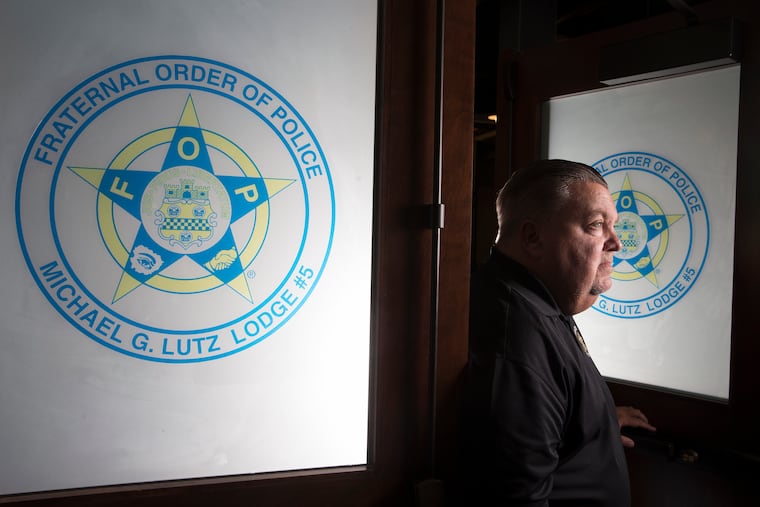Philadelphia Police Department needs democratic accountability, not secret arbitration | Editorial
Between the contract negotiation with FOP and the hiring of a new commissioner, Philadelphia has an opportunity reform how cops are disciplined.

The Philadelphia Police Department is in dire need of dramatic change — in culture and practices.
With the hiring of a new police commissioner and the start of contract negotiations between the city and the Fraternal Order of Police, the mayor has an opportunity for reform that should not be squandered.
One major barrier is the way that disciplinary issues are handled when FOP Lodge No. 5, Philadelphia’s police union, appeals disciplinary decisions.
Because police officers and firefighters are not legally allowed to strike, Pennsylvania state law lays out an arbitration process through which contracts are negotiated and disciplinary issues are resolved. The contract between the FOP and the city further lays out the exact details of the grievance and arbitration process. Arbitration proceedings are secret and arbitrators’ decisions are binding and, with few exceptions, final.
In October, The Inquirer investigated 170 confidential arbitration decisions that were issued between 2011 and 2019. In 70% of the cases, the FOP was successful in overturning or reducing disciplinary sanctions. More often than not, arbitrators turned suspensions and dismissals into paid vacations. Police officers accused of a range of offenses like domestic violence, sexual misconduct, abuse of authority, and other charges remain on the force, costing the city more than $5 million in back pay and settlements.
The arbitration process is often cited as a concern, not only by activists but by former police commissioners.
Stephen Rushin, associate professor of law at Loyola University Chicago, reviewed 656 police union contracts and calls the process of outsourcing police disciplinary actions is a “formidable barrier to democratic police accountability.”
» READ MORE: How a flawed system hid a Philly police commander's sexual misconduct for 15 years
Other cities have taken steps to bring back democratic police accountability.
For example, in Fullerton, Calif., the onus is on the aggrieved officer to explain why the disciplinary action against them was “arbitrary, capricious, discriminatory, or otherwise unreasonable.” This change would likely require amendment to state law defining the scope of arbitration.
Another option is more civilian oversight. Detroit, for example, has a civilian commission that investigates and adjudicates police disciplinary matters. Even though the ruling can be appealed to a third-party arbitrator, the additional oversight is important. According to the Washington Post, between 2006 and 2017, Philadelphia fired 71 officers and rehired 44. Detroit fired 47 and rehired only five.
Finally, a way to strengthen the city’s position in arbitration is to strengthen the police’s internal affairs division. The stronger the investigation of the misconduct before the arbitration, the more likely it is that the FOP won’t succeed in poking holes in the city’s case.
The city is taking steps to let in some sunlight into the process and plans to post redacted arbitration decisions online. That’s a good first step, but even better would be posting a full transcription of hearings.
Culture change has to start at the top. By fighting for more accountability in the contract and choosing a commissioner who will strengthen internal affairs and will not be afraid to discipline officers, Mayor Jim Kenney will signal to every police officer and to the FOP — and to citizens — that it’s time for democratic police accountability.